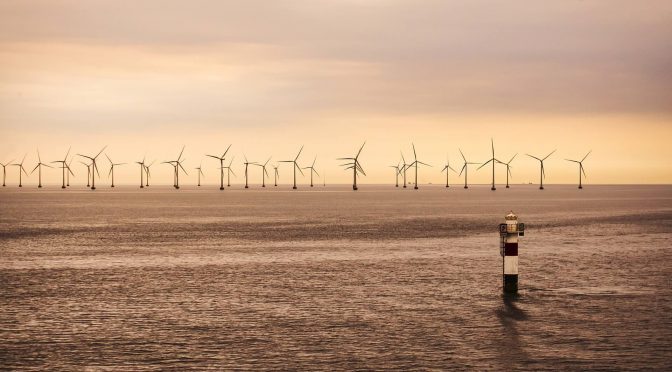In June, Virginia became the first state in the nation to stand offshore wind turbines in federal waters. And with its larger adjacent Coastal Virginia Offshore Wind project, Virginia is in line to be home to the nation’s largest project — bringing 2,600 megawatts of offshore wind energy by 2026, enough to power more than 650,000 homes.
Virginia must now ensure that offshore wind is done right — meaning it is brought online in a way that is fair, equitable and beneficial for all Virginia communities.
According to the Virginia Department of Health, almost 900,000 Virginia residents live below the federal poverty threshold. With offshore wind, Virginia can help confront income inequality by creating more and higher paying jobs for its residents.
Researchers estimate that a full build-out of the offshore wind industry can create more than 14,000 jobs in Virginia. These are high-paying, local, career-length jobs that can employ a broad swath of Virginians, from high school and college grads to returning citizens, veterans transitioning to the civilian workforce, residents in low-income communities and workers transitioning out of careers devastated by COVID-19.
In addition to tremendous, wealth-building job opportunities, constructing offshore wind turbines with American parts and labor will also bring significant cost savings. Globally, costs have plunged 32% in the past year, and industry experts anticipate even further price drops as the United States builds its own manufacturing and supply chain instead of importing European parts.
The 2020 Virginia Clean Economy Act mandates that 5200 MW of offshore wind be constructed and delivered to the grid by 2035. The Virginia project represents half of that. The remaining 2,600 MW could manifest by leasing additional wind energy areas off Virginia’s coast and/or from the Kitty Hawk offshore wind project. Avangrid Renewables will start building this North Carolina project in 2025 and deliver that power into the grid through Virginia.
This sizable commitment helps position the commonwealth to become an offshore wind hub for the industry, serving not only Virginia and North Carolina, but also projects in northeastern states where more than 25 gigawatts of power — enough to power more than 15 million homes — are in the planning pipeline by 2030.
Indeed, this commitment has already prompted Siemens Gamesa, the world’s largest offshore wind turbine manufacturer, to announce interest in locating its U.S. manufacturing facility in Virginia.
To potentially seal the deal with them, or any other offshore wind manufacturer or developer, and to capture the job-creating and cost-saving benefits of offshore wind development, a robust and diverse workforce in Virginia must be readied.
Our Hampton Roads community must quickly come together, craft and implement a workforce development plan, and promote and expand on the plethora of already existing training and educational programs establishing that readiness. To ensure the build out is equitable, we must ensure that the job training and educational programs are accessible to people of color from low-income neighborhoods in our region.
The asset list selling Hampton Roads as the ideal place for offshore wind is extensive: deep-water harbor, no restrictions to vessel heights, the nation’s largest shipbuilding industry, port infrastructure, a robust network of community colleges and world-class universities, just to name a few. But tops on that list is the large coalition of offshore wind supporters that have been working together since 2009 to iron out the conflicts and to make it happen for Virginia.
With so much accomplished, we must now turn our attention to publicizing the job opportunities and getting Virginians into the educational and training programs ASAP. Otherwise we risk losing these wealth-creating job opportunities to other states.
Perhaps it was due to its infancy, but offshore wind survived COVID-19. Offshore wind can also be a solution to COVID-19, but we only do so by putting people power into the equation. Let’s make a plan, Virginia.
Eileen Woll is the Offshore Energy Program Director of the Sierra Club Virginia Chapter, located in Norfolk.


